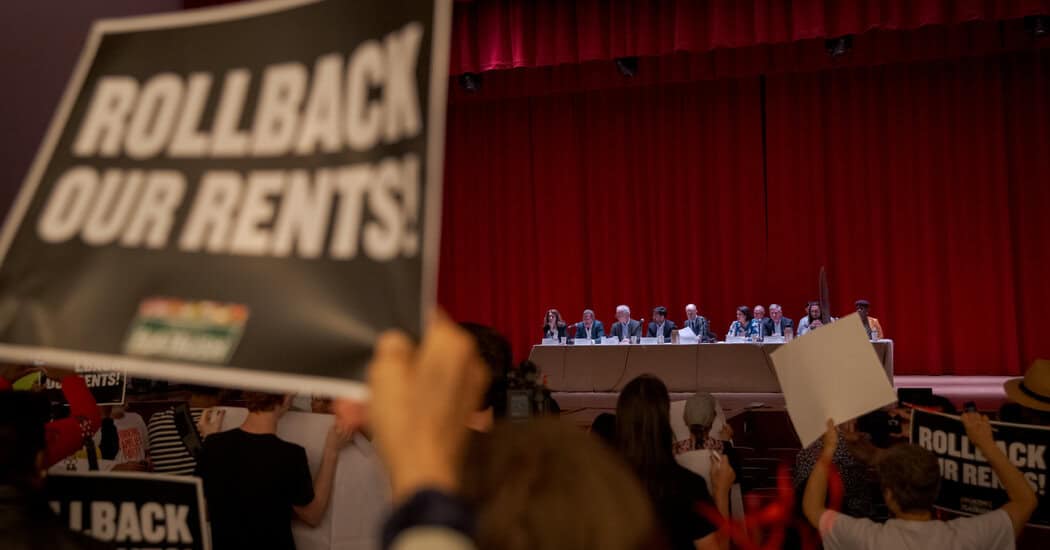
Millions of New Yorkers Wait to Hear How Much Their Rent Will Go Up
The News
Officials in New York City will soon decide how much rents are allowed to go up across nearly one million rent-stabilized apartments.
A nine-member panel, the Rent Guidelines Board, will probably vote on Tuesday evening to back modest increases. The preliminary vote may endorse a range of possible increases with a final vote on a specific number slated for later this spring. Any increase would affect leases beginning on Oct. 1.

Tenants and landlords often clash at the annual vote to decide how much the rent on stabilized apartments can climb. Credit…Anna Watts for The New York Times
Why It Matters: The rent vote affects a lot of people.
The nearly one million rent-stabilized apartments in the city are home to roughly a quarter of the population. Many of those apartments remain relatively affordable: The rent on a median, rent-stabilized unit is about $1,500, compared with $2,000 for the median, market-rate unit, city data shows.
The annual vote is something of a microcosm of the fraught discourse around New York City’s housing crisis. Board meetings in recent years have been interrupted by protests.
The panel’s decision aims to balance the interests of landlords and tenants. The vote, however, is a major source of tension between the opposing sides, with advocates for tenants calling for rents to be frozen or reduced every year and supporters of landlords calling for larger increases.
Many landlords cast the board’s vote as existential. In 2019, the State Legislature eliminated many of the ways to raise rents on rent-stabilized units, including the so-called vacancy bonus, which allowed increases of up to 20 percent when a tenant moved out.
The increases that the board approves, landlords say, are the only practical way to make enough money to maintain a rent-stabilized apartment. Many landlords say they are leaving units vacant because the increases haven’t been high enough in recent years to cover the cost of needed renovations and repairs.
Background
The board is appointed by the mayor, and its vote tends to reflect the priorities of City Hall. Under former Mayor Bill de Blasio, who was more of an advocate for tenants, the board barely allowed any increases.
During the tenure of Mayor Eric Adams, the board has backed increases every year, though costs of property ownership have also jumped significantly. Last year, the board allowed increases of 3 percent on one-year leases. On two-year leases, the board allowed increases of 2.75 percent on the first year and 3.2 percent on the second year.
In 2022, the board allowed increases of 3.25 percent on one-year leases and 5 percent on two-year leases.
What’s Next? The final vote.
The board usually takes a second vote, which is final, a few weeks after the preliminary vote. In the interim, the board will likely be lobbied heavily by advocates for tenants and landlords and public officials.